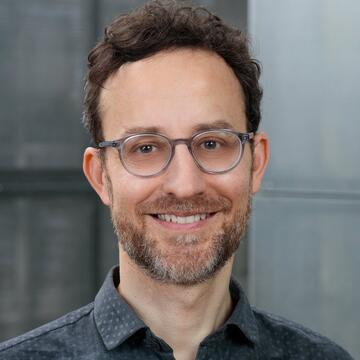
Stefan Gruber

Stefan Gruber is a registered architect and Associate Professor in the Carnegie Mellon School of Architecture. He serves as Track Chair of the Master of Urban Design (MUD) program and holds a courtesy appointment at the School of Design. Gruber holds the David Lewis/Heinz Endowments Directorship of Urban Design and Regional Engagement. In this role, he directs the Remaking Cities Institute (RCI). He was awarded indefinite tenure with the SoA in 2022.
His work spans architectural design, urbanism and research with a particular focus on spatial justice and the political as articulated through the negotiation of top-down planning and bottom-up transformations of cities. His research and curatorial projects explore spaces and practices of commoning contributing to the transition towards a more equitable, resilient and self-determined future beyond the paradigms of the market or the state.
TEACHING
Gruber’s teaching includes Commoning the City investigating citizen-led initiatives around the world. The design-based-research studio has led to the ifa-exhibition An Atlas of Commoning in collaboration with ARCH+ that is travelling internationally for 10 years. He also leads the Urban Collaboratory Studio that works with Pittsburgh communities on the tactical transformation of their neighborhood through urban acupuncture. Recent projects include Roaming Porches with the Manchester Academic Charter School and the Community Forge Playscape in Wilkinsburg, which was recognized with the 2019 ULI Placemaking Award and an ACSA Collaborative Practice Award. Gruber also teaches a foundational course on Urbanism for BArch students and a MUD seminar on Issues of Global Urbanization.
Stefan previously taught at the Academy of Fine Arts Vienna from 2006 to 2016, where he directed the platform for Geography, Landscape and Cities. As the deputy head of the Institute for Art and Architecture from 2007 to 2011, he developed and implemented the school’s new B.Arch and M.Arch curricula. He has lectured and served as critic at over 40 universities across Europe and North America.
DESIGN PRACTICE
Gruber founded STUDIOGRUBER in 2006. STUDIOGRUBER’s design work has been exhibited, published and recognized internationally. Realized projects include Hiding in Plain Sight, a pedal powered pop-up movie theater for Pittsburgh Downtown Partnerships, the Lecture Pods Semper Depot, a finalist for the Federal Austrian Design Prize, and the Wishing Table, an installation in collaboration with artist Ursula Achternkamp and gardener Klaus Fischedick at the Stiftung Bauhaus Dessau. The office has won numerous competitions including Europan and for the cultural institution SCHUNCK* in Heerlen in the Netherlands. In 2010, STUDIOGRUBER was selected as one of twelve promising Young Viennese Architecture firms (YoVA3), as well as an emerging design talent from the Meuse-Rhine region (ROOTS). From 2002 to 2006, Stefan worked for Diller, Scofidio + Renfro on the redesign of Lincoln Center’s public spaces and Alice Tully Hall, among other projects.
RESEARCH AND CURATORIAL PRACTICE
Gruber curated the ifa-exhibition An Atlas of Commoning in collaboration with ARCH+ and guest edited the accompanying ARCH+ issue. Most recently he curated ‘A dialogue must take place, precisely because we don’t speak the same language’ for the 2020 Tbilisi Architecture Biennale. Together with Anette Baldauf, Gruber initiated Spaces of Commoning, an interdisciplinary research project on commoning, artistic practices and the city, documented in the eponymous book (Sternberg, 2016). Other book publications include a social fiction The Report (MAK, Museum for Applied Arts Vienna, 2015 with STEALTH.unlimited and Paul Currion); Big! Bad? Modern: Four Megabuildings in Vienna (Park Books, 2015); and Vienna: Slow Capital (Academy of Fine Arts Vienna, 2011). He has authored numerous book chapters and essays that have appeared in Arch+, Le Monde Diplomatique, Bracket, Future Architecture, New Geographies and MonU - Magazine on Urbanism, where Stefan serves as an advisor to the editorial board.
AWARDS AND ACHIEVEMENTS
Stefan’s work has been recognized and supported by the Graham Foundation, the Viennese Science and Technology Fund, the Margarete Schütte-Lihotzky Stipend, an Akademie Schloss Solitude residency and multiple Cusanuswerk fellowships. At CMU his research has been supported by several Margaret B. Gruger Faculty Awards, the CFA Fund for Research and Creativity, Berkman Grant and a Wimmer Faculty Fellowship.
Stefan is a licensed architect in Germany and holds a Dipl.-Ing. professional degree from the Rheinisch-Westfälische Technische Hochschule in Aachen, Germany, where he graduated summa cum laude, and a post-graduate degree MSAAD with honors from Columbia University. As a student he received the Springorum medal and a William Kinne Fellow Traveling prize.
In his work Stefan draws on his nomadic experience: A dual French and German citizen, Stefan was born in London and raised on both sides of the equator in the Americas, as well as both sides of the Iron Curtain in Europe.